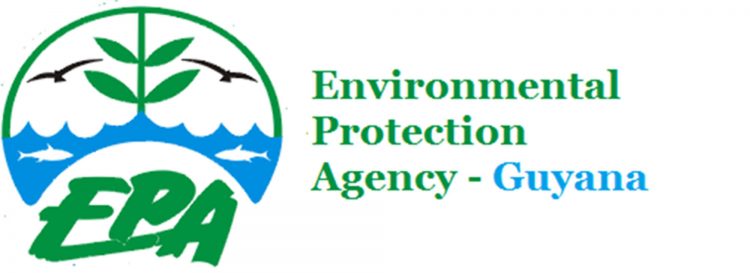A ruling is expected next week on whether there is merit in the appeal filed by the Environmental Protection Agency (EPA) to the High Court order that it enforce the liability clause in permits for ExxonMobil’s offshore oil operations here.
Also likely is a ruling on whether the appellate court will grant a stay of execution on the order.
Following the presentation of arguments yesterday morning on the preliminary issues, Justice of Appeal Rishi Persaud said that the court goes into a short recess from today until next Wednesday.
 He said he intends to deliver his ruling after, and that the parties will be informed of the date.
He said he intends to deliver his ruling after, and that the parties will be informed of the date.
From what Justice Persaud has indicated, the ruling will likely be on Thursday or Friday of next week.
Yesterday the court heard submissions from counsel for the EPA and Exxon’s local affiliate—Esso Exploration and Production Guyana Limited (EEPGL)—who argued that the trial judge had committed a number of errors in his ruling.
Senior Counsel Edward Luckhoo for Esso, made the point that the trial judge misapplied the law in arriving at the conclusions he did; and so, it is now for the appellate court to remedy those wrongs.
Because of those misrepresentations, Luckhoo held that his client’s appeal does not merely have a prospect of succeeding but an “excellent” prospect.
High court Judge Sandil Kissoon in delivering his judgment last month, said that in the course of the proceedings, the Court found on the evidence that EEPGL was engaged in a “disingenuous attempt which was calculated to deceive, when it sought to dilute its liabilities,” while simultaneously optimising production.
In his ruling, Justice Kissoon said of the EPA, “It has abdicated the exclusive statutory responsibilities entrusted to it by Parliament under the Environmental Protection Act 1996 and the Environmental Protection Regulations 2000 to ensure due compliance by Esso Exploration and Production Guyana Limited.”
Much of the court’s attention yesterday morning was directed to the issue of the “unlimited” financial guarantee which the lower court ruled that Esso is to provide for its oil extraction operations here.
Sanjeev Datadin for the EPA sought to reemphasize his client’s position, arguing among other things that the judge’s finding that the financial assurances set out in the permit were “unlimited; “was a flawed line of reasoning.
He said that the financial assurance is an estimate—a quantifiable sum—which is not unlimited, for which he argued the terms of the permit provided.
He said that Justice Kissoon’s ruling wrongly gives the impression that an unlimited guarantee somehow prohibits the environmental ills referenced, from occurring.
Datadin said that the existence of insurance is never to prevent the ill from happening, but rather to compensate after the fact. He said that this is how the insurance needs to be viewed and not as a shield from what would be the ill.
Datadin argued that the trial judge interpreted the statute and permit incorrectly, which led to the resultant incorrect conclusion at which he arrived; even as he argued that nowhere in the permit is provision made for “unlimited.”
He said that that word was imported by the trial judge because of a misunderstanding and misinterpretation of the law; which he said further resulted in overreach on the part of the court in the orders made against EPA which he said are “coercive.”
Echoing the sentiments expressed by Datadin, Luckhoo said that the condition in the permit clearly contemplated an estimate; while adding that the judge took into consideration extraneous considerations.
Senior Counsel Seenath Jairam who represents the respondents by whom the initial action was brought against the EPA argued, however, that both Datadin and Luckhoo were “cherry-picking” aspects of the permit that suited their arguments, and not looking at it holistically.
He said that Justice Kissoon’s ruling was clear that the permit-holder is to be liable for “all” costs in accordance with condition 14 of the permit, for which no mere estimate would suffice.
He said that the Appellants—EPA and Esso—ought to bring themselves into compliance with the judge’s orders as they are currently in contempt, having not even sought an extension of time to comply, while the appeal pends.
Jairam said that they are to comply until and unless the order is set aside by a superior court. On this ground alone, he said that EPA nor Esso should not be granted the stay they are seeking. In fact, he said that they ought not even to be heard.
He described the chances of the appeal succeeding as that of the chances of “a snowball in hell.”
He said that for all the talk by Esso that it has the financial wherewithal for the unlimited guarantee, it needs to just comply with the High Court’s order and provide that guarantee; arguing that the Appellants are unable to show how they would be unjustly affected in any way.
Luckhoo said that lost revenue would not be regained. This he said, is the injustice that Esso stands to suffer if the permit is suspended as has been the order of Justice Kissoon if there is no compliance by June 10th.
The EPA described the order made by the court that the permit stands suspended for breach of the Environmental Protection Act as “coercive.”
Like the EPA, Esso says that the order, which further states that failure to enforce would result in the permit being suspended, is “coercive.”
Describing its appeal as a “very arguable” one, Esso advances that the trial judge erred in law when he determined that Esso was required by the permit to provide an unlimited parent company guarantee and indemnity agreement or affiliate company guarantee.
Background
President of the Transparency Institute of Guyana Inc (TIGI) Frederick Collins together with another concerned citizen—Godfrey Whyte—had moved to the court last year to get the EPA to enforce the liability clause in the permits it had issued to ExxonMobil.
The litigants have said that the resort to the court was their bid to ensure that the company take full financial responsibility for possible resulting harm, loss and/or damage to the environment.
Esso has agreed in the permit to provide insurance and an unlimited parent company indemnity to cover all environmental loss and damage that might result from a well blowout, oil spill or other failures in the Liza 1 Development Project in Guyana’s Stabroek Block.
Colins and Whyte had argued through their attorneys that “…the agency, through its human minds, including its officers has failed or omitted to carry out or to show that it has carried out its legal duties and or obligations thereby amounting to misfeasance in public office by them and by failing or omitting to act, has acted unreasonably, irregularly or improperly and or has abused its power.”
Justice Kissoon had said that in the course of the proceedings, the court found on the evidence that EEPGL was engaged in a “disingenuous attempt which was calculated to deceive when it sought to dilute its liabilities and settled obligations stipulated and expressed in clear unambiguous terms at Condition 14 of the Environment-al Permit (Renewed) while simultaneously optimising production at the Liza Phase 1 Petroleum Production Project in the Stabroek Block Offshore Guyana.”
Directly calling out the EPA, the judge said EEPGL “engaged in a course of action made permissible only by the omissions of a derelict, pliant and submissive Environmental Protection Agency.”
The court said it found that Esso was never in doubt as to what its liabilities were as captured under Condition 14 of the Permit, as the stipulations were neither unusual, unique or unauthorised.
Collins and Whyte are being represented by Senior Counsel Jairam, along with attorneys Melinda Janki and Abiola Wong-Inniss.
Meanwhile, Esso/EEPGL is being represented by Senior Counsel Luckhoo along with Senior Counsel Andrew Pollard and Eleanor Luckhoo.





